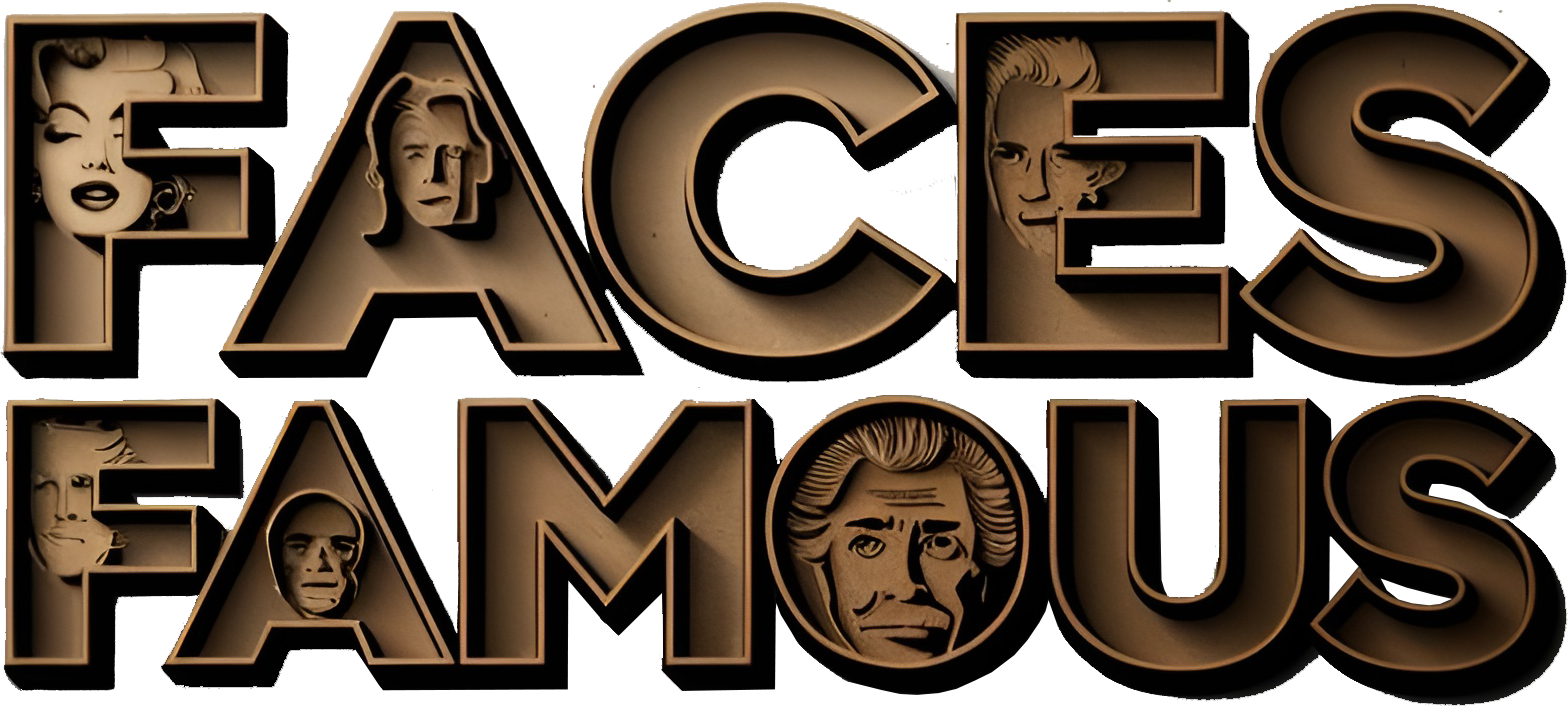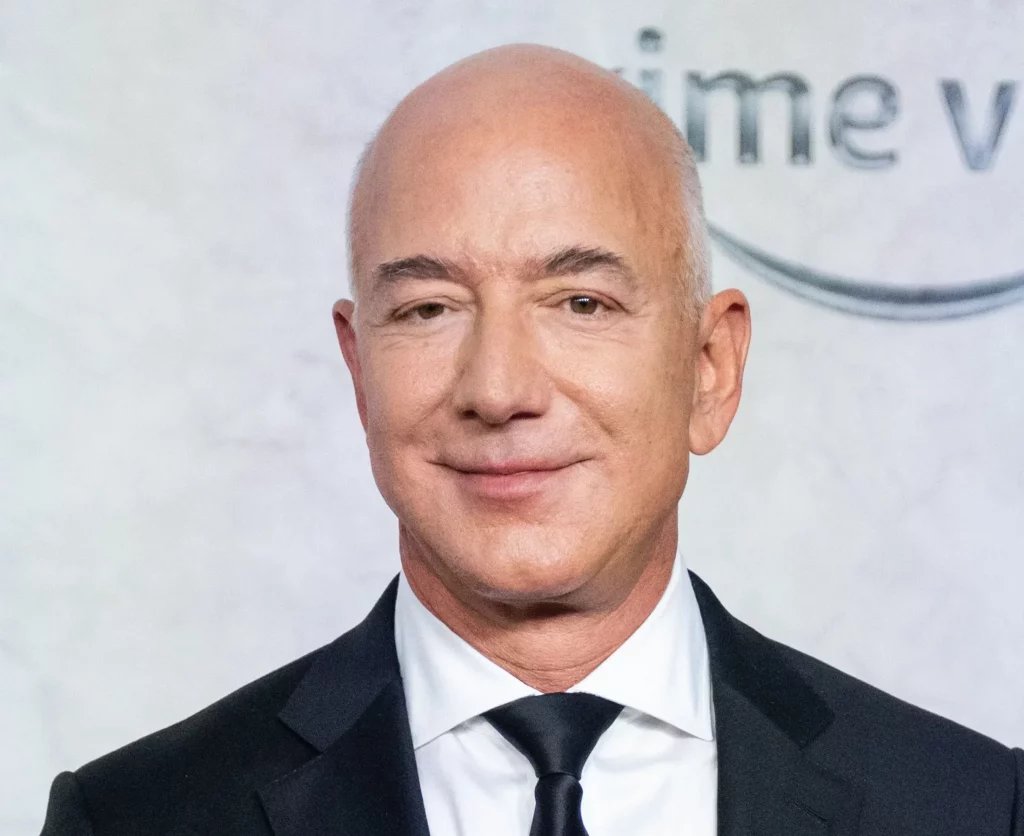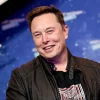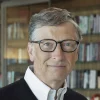Jeff Bezos is an American entrepreneur, media proprietor, investor, and one of the wealthiest individuals in the world. Best known as the founder of Amazon, the largest online retailer and one of the most influential technology companies globally, Bezos has had a profound impact on e-commerce, cloud computing, and media industries. His business ventures extend beyond Amazon, including Blue Origin, his aerospace company focused on space exploration, and his ownership of The Washington Post. Through these endeavors, Bezos has shaped the modern digital economy and positioned himself as a visionary entrepreneur.
Early Life and Education
Jeffrey Preston Bezos was born on January 12, 1964, in Albuquerque, New Mexico, to a teenage mother, Jacklyn Gise, and his biological father, Ted Jorgensen. His mother remarried Miguel Bezos, a Cuban immigrant who adopted Jeff as a young child. The family moved to Houston, Texas, where Bezos displayed a passion for science and engineering from a young age.
Bezos attended River Oaks Elementary School in Houston before moving to Miami, where he graduated as the valedictorian of Miami Palmetto Senior High School. He demonstrated a deep interest in space exploration and computer science during his high school years.
In 1986, Bezos graduated summa cum laude from Princeton University with degrees in electrical engineering and computer science. His academic background laid the foundation for his future ventures in technology and innovation.
Early Career
Before starting Amazon, Bezos worked in the financial sector. He began his career on Wall Street, where he worked for several firms, including Fitel, a telecommunications startup, and Bankers Trust, where he became a vice president. He later joined D. E. Shaw & Co., a hedge fund, where he worked as a senior vice president. It was during his time at D. E. Shaw that Bezos came across the rapid growth of the internet, which sparked his interest in creating a business that would capitalize on the emerging online market.
Founding Amazon
In 1994, Bezos left his high-paying job at D. E. Shaw and moved to Seattle, Washington, to pursue his vision of creating an online bookstore. He founded Amazon.com in July 1994 from his garage with a simple goal: to revolutionize the way people shop by leveraging the power of the internet. At the time, Bezos recognized that the internet was growing at an exponential rate of 2,300% per year, and he believed that online retail could become a major industry.
Initially, Amazon began as an online bookstore, but Bezos had a much grander vision. He wanted Amazon to become “the everything store,” offering customers a wide range of products. The company quickly expanded beyond books to sell electronics, toys, clothing, and other goods. Bezos’s customer-centric philosophy, focusing on convenience, low prices, and fast delivery, became the cornerstone of Amazon’s success.
Amazon’s Expansion and Success
Under Bezos’s leadership, Amazon rapidly grew to become a global e-commerce giant. In 1997, the company went public, raising $54 million, and its stock price soared. Bezos reinvested much of Amazon’s profits into expanding its infrastructure, including building a vast network of fulfillment centers and launching Amazon Web Services (AWS), a cloud computing platform that became a major revenue stream for the company.
AWS revolutionized cloud computing by providing on-demand storage, computational power, and database services to businesses and governments. Today, AWS is one of the largest and most profitable parts of Amazon, contributing significantly to the company’s overall success.
In addition to its retail and cloud computing businesses, Amazon ventured into various sectors, including Prime Video, Kindle e-readers, Alexa virtual assistants, and Amazon Fresh grocery services. The company’s continued focus on innovation and technological advancements allowed it to disrupt industries such as entertainment, logistics, and publishing.
Bezos’s leadership was also instrumental in launching Amazon Prime, a subscription-based service that offered free shipping and access to streaming content. This service attracted millions of loyal customers and further solidified Amazon’s dominance in e-commerce.
Blue Origin and Space Exploration
While Amazon dominated the e-commerce and cloud computing space, Bezos also pursued his childhood dream of space exploration. In 2000, he founded Blue Origin, an aerospace company with the mission of making space travel affordable and accessible to everyone. Blue Origin has focused on developing reusable rockets, similar to Elon Musk’s SpaceX.
Blue Origin’s long-term vision is to create space habitats where millions of people can live and work. In 2021, Bezos himself flew to space aboard New Shepard, a Blue Origin suborbital vehicle, marking a significant milestone in private space tourism. Bezos has often described his passion for space as a way to preserve Earth by moving heavy industries off the planet, thus reducing environmental degradation.
The Washington Post
In 2013, Bezos made headlines when he purchased The Washington Post for $250 million. At the time, the newspaper industry was struggling due to declining print revenue and the rise of digital media. Bezos took a hands-off approach, allowing the newspaper’s editorial independence to remain intact while providing the necessary financial resources to revamp its digital operations.
Under his ownership, The Washington Post became a more digitally focused news organization, increasing its online subscriptions and readership significantly. Bezos’s involvement in the media highlighted his interest in supporting journalism and protecting the free press.
Wealth and Personal Life
Jeff Bezos’s wealth grew astronomically alongside Amazon’s success. In 2018, he briefly became the world’s richest person, surpassing Microsoft co-founder Bill Gates. As of 2021, Bezos consistently ranks among the richest individuals globally, with a net worth that has fluctuated due to market conditions and his philanthropic activities.
In 2019, Bezos and his wife of 25 years, MacKenzie Scott, announced their divorce. As part of the settlement, Scott received 25% of their Amazon stock, which was worth roughly $36 billion at the time, making her one of the wealthiest women in the world. Despite the divorce, Bezos remained Amazon’s largest shareholder.
In July 2021, Bezos stepped down as CEO of Amazon, transitioning to the role of Executive Chairman. He was succeeded by Andy Jassy, the former head of Amazon Web Services. This move allowed Bezos to focus more on other ventures, including Blue Origin, The Washington Post, and his philanthropic efforts.
Philanthropy
While Bezos has been criticized in the past for not engaging in as much philanthropy as some of his billionaire peers, he has made significant contributions in recent years. In 2020, he launched the Bezos Earth Fund, committing $10 billion to combat climate change. This fund focuses on supporting scientists, activists, and organizations working to protect the environment.
Bezos has also made donations to various causes, including educational initiatives, homeless shelters, and food banks. His ex-wife, MacKenzie Scott, has become one of the world’s most active philanthropists, donating billions to charity following their divorce.
Conclusion
Jeff Bezos is one of the most influential business leaders of the 21st century, whose impact on e-commerce, cloud computing, and media is unparalleled. Through Amazon, he revolutionized the way people shop and consume digital content, transforming the retail landscape globally. His ventures into space exploration and media demonstrate his broad vision for the future, extending beyond Earth and into the realm of space. While Bezos has stepped back from his role as Amazon’s CEO, his legacy continues to shape the tech industry, and his entrepreneurial spirit remains a driving force in various fields.
created by ChatGPT



